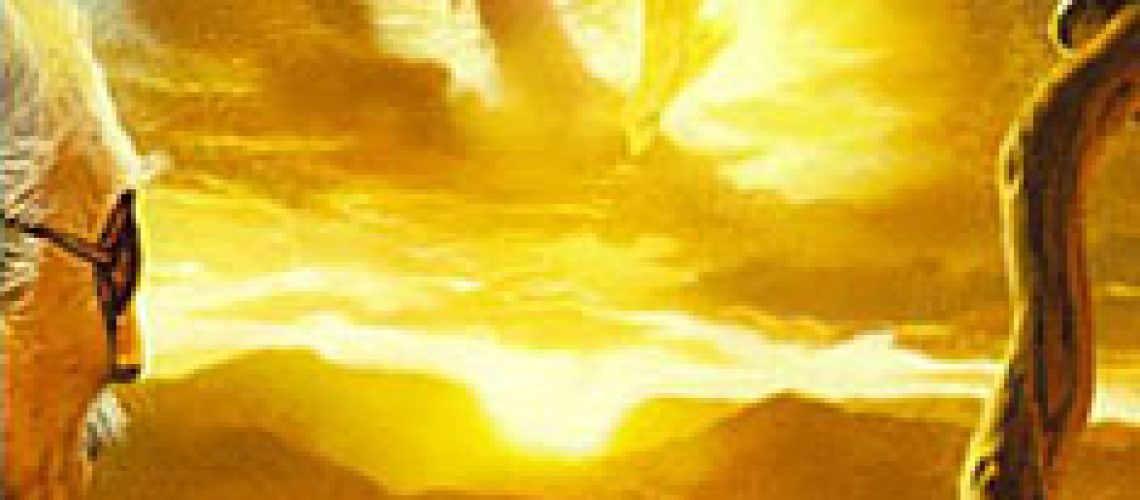It’s the 15th century, but not the 15th century we know. Julian the Apostate was no apostate in this world, and Europe, from Wales to Byzantium, is pagan. The aforementioned Byzantines are strong and vibrant, with much of Italy and France under their boot, as well as the Balkans and Middle East, and now looking greedily at the British Isles. The British Isles are wracked by a civil war between two noble houses, and, thus, are ripe for the taking; if the right outsider might be groomed for the role and given backing. Henry Tydder, bearing the symbol of a red dragon, seems like a perfect candidate for Byzantium’s plans.

Who can stop Byzantium’s plan, with a mighty empire behind them to put their desires into effect? A unlikely set of protagonists gather to coalesce around a figure they can support against Byzantium’s force. Dimitrios Ducas, a scion of a displaced line that might be the rightful one to rule Byzantium. Hywel Peredur, a Welsh student of magic and wizardry. Cynthia Ricci, a young physician of Florence, a city under threat from Byzantium’s plans. And, finally, Gregory von Bayern, the artilleryman, who shares a peculiar taste for things sanguinary. And no, he definitely does not sparkle.
And their hero, the shining star they’ve joined together to put their hopes on to face the Byzantine threat? None other than Richard Gloucester of the House of York. Not immediately familiar to you? Richard is much better known in our history as the man who became Richard III…
The World Fantasy award winning The Dragon Waiting: A Masque of History [1983] by John M Ford explores this fantastic scenario and alternate universe.
The wordplay of the novel is a hallmark of Ford’s writing and is in full evidence from the title. A “masque” of history suggests a play or theater as well as a “mask” (suggesting the alternate historical nature of the work). That theatrical approach extends to the style of writing and dialogue, and it often feels like the entire novel was meant to be performed on stage. While this sort of mannerism can turn off some readers (and the characters can trend toward archetypes as a result), I read this as a feature and not a bug. The Shakespeare play that the novel reflects and refracts is, of course, Richard III. I’d go so far as to recommend readers re-read Richard III before tackling The Dragon Waiting in order to appreciate the full effect of what Ford does in the second half of the novel. The first half of the novel is set up, as we meet our characters joining together from various parts of his altered Europe.
The novel’s other strength is the depth of research and worldbuilding into that altered Europe. Almost to the density of Gene Wolfe or John Myers Myers, a fan has compiled the references and allusions in the novel. Not giving us a timeline, Ford makes the reader work to piece together just how the history has gone differently than our own. The care and craft Ford put into his 15th century that never was amazes me still, in details small and large. For example, Dante didn’t write The Divine Comedy in The Dragon Waiting’s universe, instead writing “The Comedy of Man.” One of the Medieval Popes, in a world without the Catholic Church is instead a secular Byzantine puppet ruling Rome in its name. Hadrian, who had his titular wall built in the north of England, has been deified as a god of engineers. And much more.
Ford’s work and legacy extends beyond this one wonderful novel, as well. Ford wrote a couple of Star Trek media tie-in novels. Notably, The Final Reflection, revolving around a Klingon commander trying to prevent a war, created a lot of elements borrowed for The Next Generation and even the character of Worf — feudal Houses of the Empire, the freewheeling military, the “ridges” and look of Next Generation Klingons…and even the fact that the protagonist is an orphan of a massacre conducted by Romulans and is a scion of a now disgraced House. (Sadly, Klin Zha, a Klingon form of chess, was not one of the borrowed elements). The Last Hot Time, the last novel Ford wrote, takes the Terri Windling “Bordertown” idea of where Elfland and our world meet, and puts his own spin on it (it is in its own universe and not explicitly tied to that verse, although I understand Ford himself is tuckerized into the Bordertown universe)
The Dragon Waiting, in particular, I see as being part and leading edge of a small but vibrant “magic infused alternate history” subgenre. Reading the Blade novels of Jon C Grimwood, with vampires, magic, and werewolves in and around medieval Venice, explicitly echoed the novel for me. I think Jacqueline Carey’s Kushielverse novels owe a debt to Ford’s work, as well. The novels and stories of the Heirs of Alexandria universe of Mercedes Lackey and Eric Flint, although with a much more Christian bent, also follow in Ford’s footsteps.
The Dragon Waiting is criminally out of print (a recent trip to the best SF/F used and new bookstore in the midwest turned up no copies) and reports are that the Ford estate would rather his literary efforts be forgotten. Nearly all of his other work is out of print as well. I think this is a tragic and shortsighted point of view. The Dragon Waiting is a classic, and much of Ford’s other oeuvre is worth finding and reading, as well.










One Response